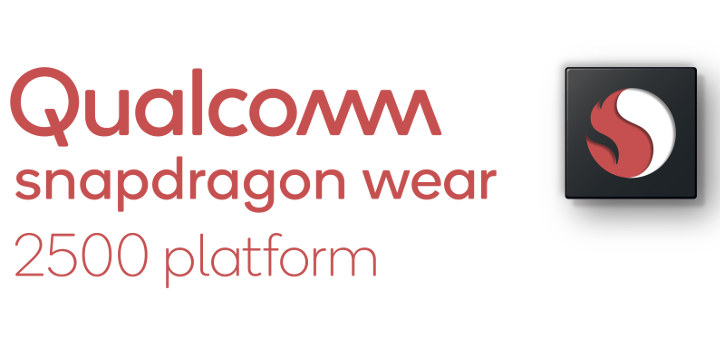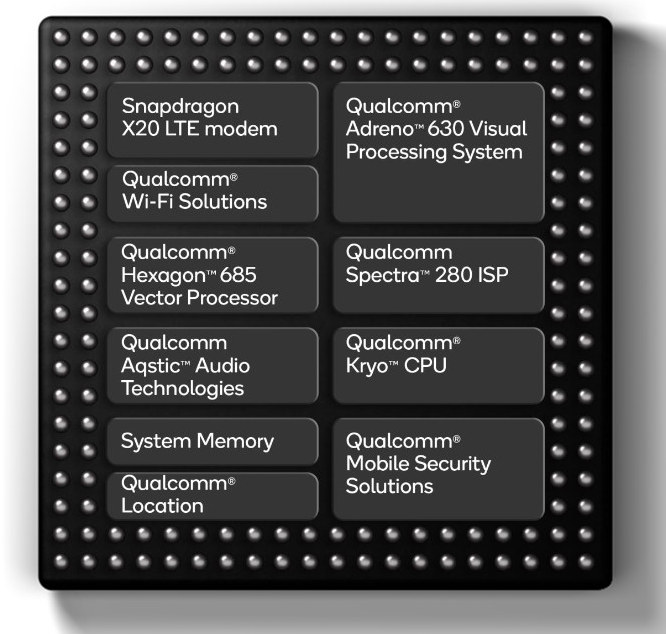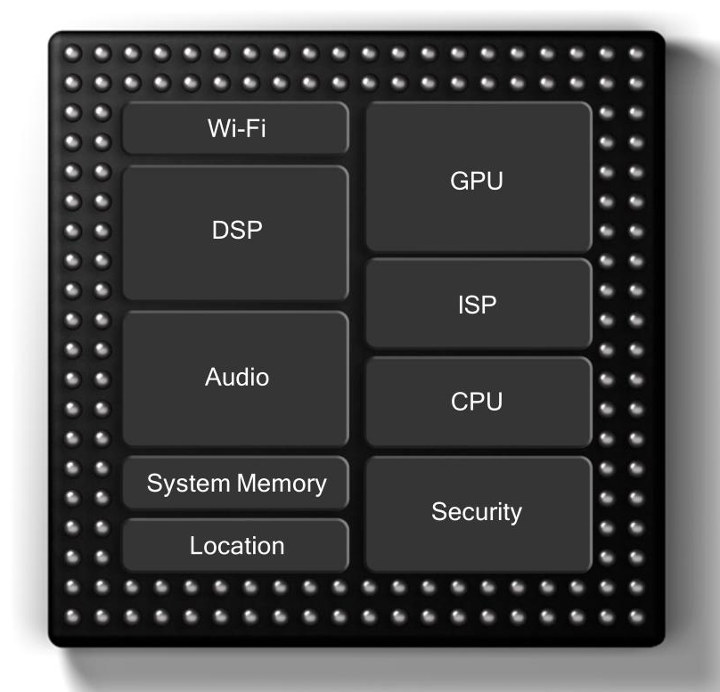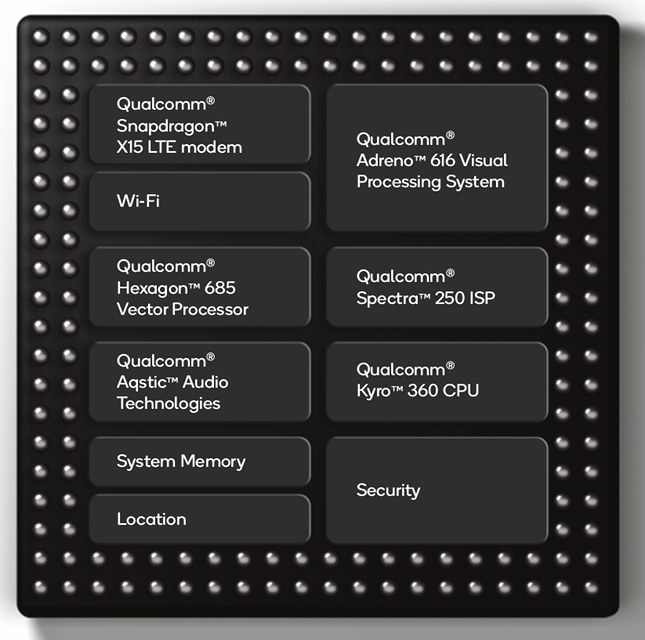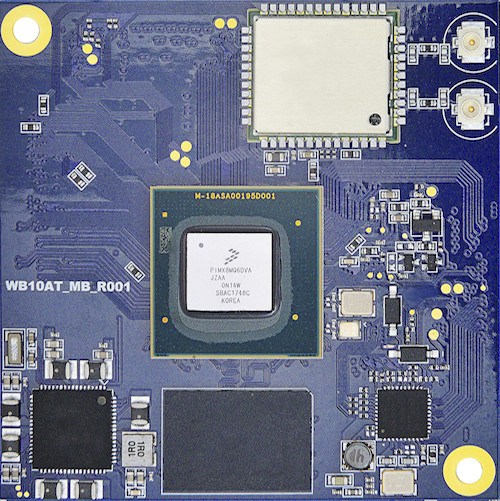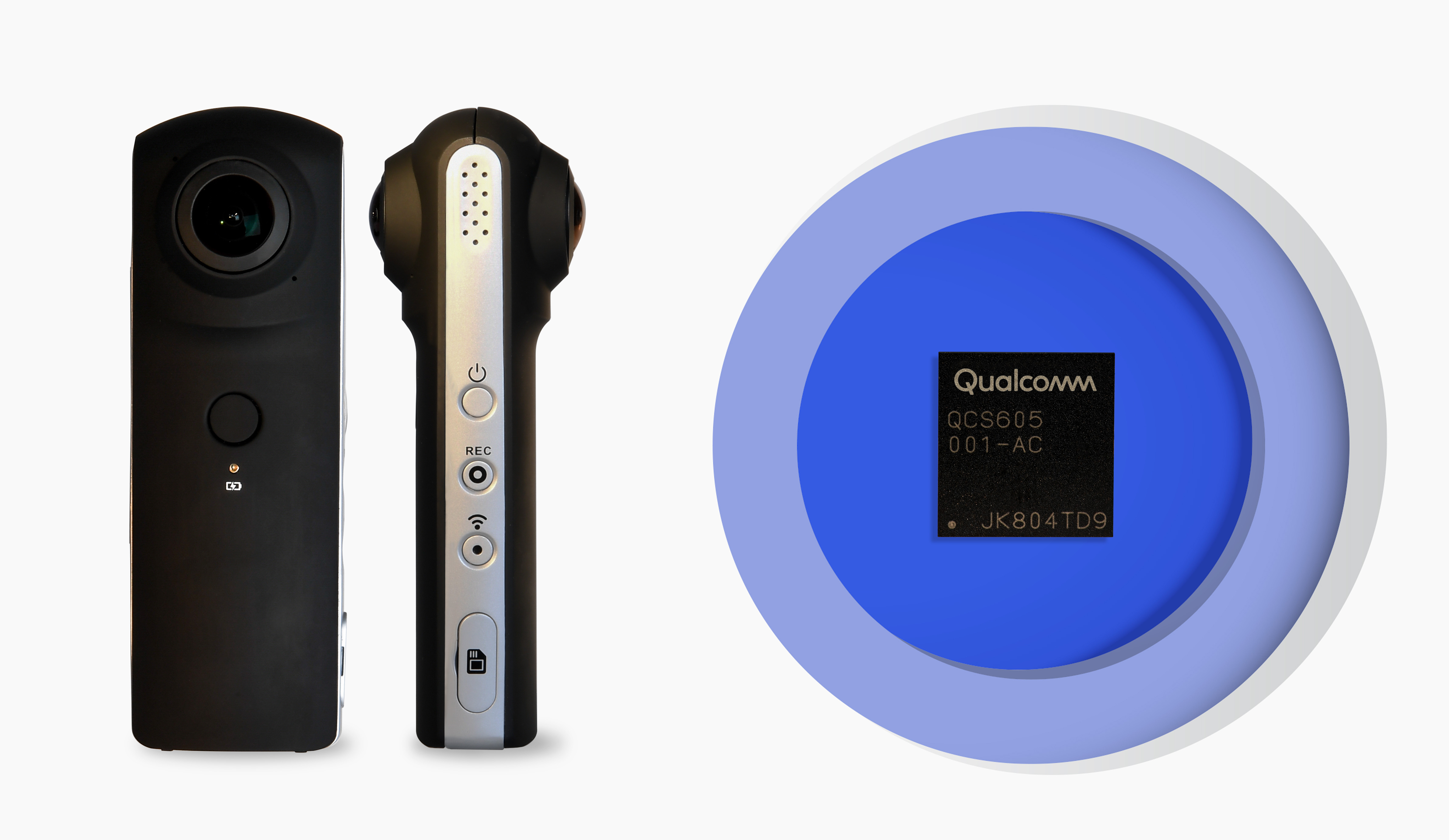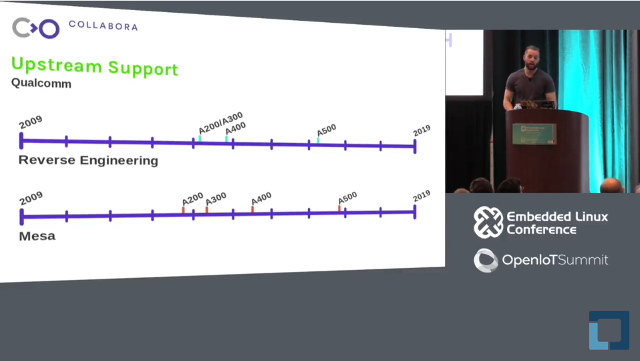Qualcomm has made several announcements at Mobile World Congress Shanghai 2018. We’ve already covered Snapdragon 632, 639, and 629 processors for mid- and high-tier smartphones, but the company has also finally announced a new SoC for wearables succeeding Snapdragon Wear 2100. Meet Snapdragon Wear 2500, specifically targeting 4G children watches. Qualcomm is usually not the best company when it comes to releasing technical details about their processors, but here what Snapdragon Wear 2500 specifications should look like: Processor – 4x Arm Cortex A7 GPU – Adreno-class GPU Connectivity – Fifth generation 4G LTE modem with RF front-end (RFFE), location engine, “Bluetooth streaming architecture”, NXP NFC solution Camera I/F – 5MP Ultra-low power sensor hub working with InvenSense sensors Power – Wearable PMIC reducing Rock Bottom Sleep Current (RBSC) by percent, charger, fuel gauge Compact package Snapdragon Wear 2500 is designed for low power with up to 14 percent longer battery […]
Qualcomm Introduces Snapdragon 632, 439 and 429 Mobile Platforms
Qualcomm has announced three new snapdragon mobile platforms for high- and mid-tiers mobile devices with Snapdragon 429, Snapdragon 439, and Snapdragon 632 processors. The new chips will bring higher performance, better battery life, more efficient designs, improved graphics and artificial intelligence (AI) capabilities into these classes of devices. Snapdragon 429 & 439 Designed for mid-range smartphones, both Snapdragon 439 and Snapdragon 429 processors are pin-to-pin compatible, equipped with artificial intelligence capabilities, X6 LTE modem, and deliver up to 25% performance increase over previous generation processor, respectively Snapdragon 430 and Snapdragon 425 that enhance the camera, voice, and security experience. Snapdragon 439 however features an octa-core Cortex A53 processor clocked at up to 1.95 GHz coupled with an Adreno 505 GPU delivering up to 20% faster graphics rendering compared to SDM430, while the Snapdragon 429 comes with a quad core Cortex A53 processor and an Adreno 504 GPU yielding up to […]
Qualcomm Snapdragon 850 is Designed for Windows 10 Mobile PCs
As you all probably know, Qualcomm and Microsoft worked together and launched always-on, always-connected Windows 10 mobile PCs powered by Qualcomm Snapdragon 835 Arm processor earlier this year. Battery life is spectacular, but considering the fairly high price of such devices, many were disappointed by performance which in many cases is not much better than much cheaper Intel Apollo Lake laptops. But performance of future Qualcomm based Arm laptops will improve significantly thanks to Snapdragon 850 Mobile Compute Platform featuring eight Kryo 385 cores clocked to close to 3 GHz, and other enhancements. Qualcomm Snapdragon 850 “Mobile Compute Platform” specifications: CPU – 8x Kryo 385 Arm cores clocked @ up to 2.96 GHz GPU – Adreno 630 Visual Processing Subsystem with Open GL ES 3.2, Open CL 2.0, Vulkan, DirectX 12 Ultra HD Premium video playback and encoding @ 4K (3840×2160) 30fps, Slow motion HEVC video encoding of FHD (1080p) […]
Qualcomm Snapdragon XR1 is a Dedicated eXtended reality (XR) platform For XR / VR Headset
Qualcomm has unveiled its first Snapdragon XR platform specifically designed for extended / augmented / virtual reality headsets during a launch event leading up to the Augmented World Expo (AWE). Snapdragon XR1 features the usual Arm based Kryo cores, Adreno GPU, Hexagon DSP, ISP, and so on, but for whatever reason, the company did not disclose details specifications about the platform / SoC. XR1 also provides Qualcomm AI Engine for on-device processing, as well as an advanced XR software service layer, machine learning, the Snapdragon XR Software Development Kit (SDK) and Qualcomm Technologies connectivity and security technologies. Advanced vision processing capabilities of the SoC enabled technologies such as Visual Inertial Odometry (VIO) The XR1 platform will be for higher headsets with 3 to 6 degrees of freedom (3DoF, 6DoF), support ultra high-definition 4K video resolution at up to 60 frames per second, and offer reduced unwanted noise using its Spectra […]
Qualcomm Snapdragon 710 Brings AI To Mid-Range Smartphones
Neural processing units (NPU) – also called Neural network accelerators (NNA) – can now be found in all premium smartphone SoCs in order to assist with artificial intelligence applications such as object recognition, face unlock, and better photography. There seems to be a trend now to add such AI accelerators into what some refers to as mid-range premium smartphones, and Qualcomm Snapdragon 710 mobile platform is another of those processors placing itself between mid range Snapdragon 600 series and premium Snapdragon 800 series. Qualcomm Snapdragon 710 mobile platform (SDM710) specifications: CPU – 8x Qualcomm Kryo 360 CPU @ up to 2.2 GHz (in two clusters) GPU – Qualcomm Adreno 616 Visual Processing Subsystem supporting OpenGL ES 3.2, OpenCL 2.0, Vulkan, DirectX 12 DSP – Qualcomm Hexagon 680 DSP with 3rd Gen Qualcomm Hexagon Vector Extensions (HVX), Qualcomm All-Ways Aware Sensor Hub Memory I/F – LPDDR4x, 2x 16-bit up to 1866MHz, 8GB […]
Android Things 1.0 Released with Support for NXP i.MX 8M, Qualcomm SDA212/SDA624 and Mediatek MT8516 SoMs
Brillo Project was renamed to Android Things with the release of a developer preview back in December 2014, and the operating system enabling developers and companies to build and maintain Internet of Things devices at scale. The OS has now graduated so-to-speak with the release of Android Things 1.0 with long-term support for production devices, and this was to be expected as several Android Things devices were announced earlier this year. The new release adds supports for new system-on-modules (SoMs) based on the NXP i.MX8M, Qualcomm SDA212, Qualcomm SDA624, and MediaTek MT8516 SoCs. These modules are certified for production use with guaranteed long-term support for 3 years, and development hardware and reference designs for these SoMs will be available in the coming months. The Raspberry Pi 3 Model B and NXP i.MX7D boards and system-on-modules are still supported, but support for NXP i.MX6UL devices will be deprecated. Check out the […]
Qualcomm QCS603/QCS605 “IoT” SoCs are Designed for AI and Computer Vision Applications
Qualcomm has unveiled the “Qualcomm Vision Intelligence Platform”, which aims at IoT devices with cameras leveraging artificial intelligence and computer vision. The first SoCs part of the platform are QCS605 and QCS603 manufactured with a 10nm process and equipped with an “advanced image signal processor” and the Qualcomm Artificial Intelligence (AI) Engine, as well Arm CPU cluster, Adreno GPU, and Hexagon DSP. QCS603 & QCS605 specifications: CPU QCS603 – 2x 1.6GHz Qualcomm Kryo 300 Gold cores, 2x 1.7GHz Qualcomm Kryo 300 Silver cores QCS605 – 2x 2.5GHz Qualcomm Kryo 300 Gold cores, 6x 1.7GHz Qualcomm Kryo 300 Silver cores Qualcomm Artificial Intelligence Engine DSP Qualcomm Hexagon 685 Vector Processor 2x Qualcomm Hexagon Vector eXtensions (HVX) GPU – Qualcomm Adreno 615 with OpenGL ES 3.2, Vulkan, OpenCL support Neural Processing – Qualcomm Snapdragon Neural Processing Engine programming interface with support for Tensorflow, Caffe/Caffe2, ONNE, Android NN; 2.1 TOPS @ 1w Memory […]
Status of Embedded GPU Ecosystem – Linux/Mesa Upstream Support (ELC 2018 Video)
The Embedded Linux Confernce is on-going, and the Linux Foundation has been uploading videos about talks in a timely manner on YouTube. I checked out at RISC-V keynote yesterday, but today I’ve watched a talk by Robert Foss (his real name, not related to FOSS) from Collabora entitled “Progress in the Embedded GPU Ecosystem”, where he discusses open source software support in Linux/Mesa from companies and reverse-engineering support. The first part deals with the history of embedded GPU support, especially when it comes to company support. Intel was the first and offers very good support for their drivers, following by AMD who also is a good citizen. NVIDIA has the Nouveau driver but they did not really backed it up, and Tegra support is apparently sponsored by an aircraft supplier. Other companies have been slower to help, but Qualcomm has made progress since 2015 and now support all their hardware, […]


